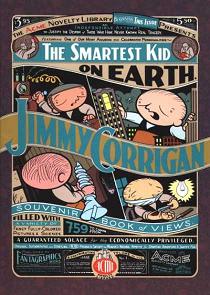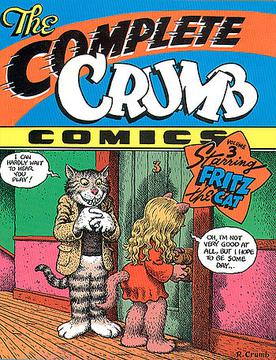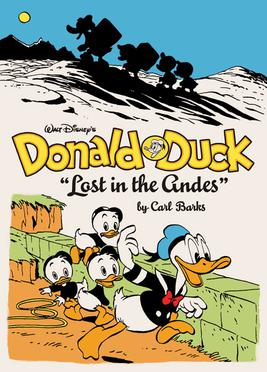Related Research Articles

Gasoline Alley is a comic strip created by Frank King and distributed by Tribune Content Agency. It centers on the lives of patriarch Walt Wallet, his family, and residents in the town of Gasoline Alley, with storylines reflecting traditional American values.

Acme Novelty Library is a comic book series created by Chicago cartoonist Chris Ware. Its first issue appeared in 1993. Published from 1994 by Fantagraphics Books and later self-published, it is considered a significant work in alternative comics, selling over 20,000 copies per issue.

Franklin Christenson "Chris" Ware is an American cartoonist known for his Acme Novelty Library series and the graphic novels Jimmy Corrigan, the Smartest Kid on Earth (2000), Building Stories (2012) and Rusty Brown (2019). His works explore themes of social isolation, emotional torment and depression. He tends to use a vivid color palette and realistic, meticulous detail. His lettering and images are often elaborate and sometimes evoke the ragtime era or another early 20th-century American design style.

Drawn & Quarterly is a publishing company based in Montreal, Quebec, Canada, specializing in comics. It publishes primarily comic books, graphic novels and comic strip collections. The books it publishes are noted for their artistic content, as well as the quality of printing and design. The name of the company is a pun on "drawing", "quarterly", and the practice of hanging, drawing and quartering. Initially it specialized in underground and alternative comics, but has since expanded into classic reprints and translations of foreign works. Drawn & Quarterly was the company's flagship quarterly anthology during the 1990s.

Kitchen Sink Press was a comic book publishing company founded by Denis Kitchen in 1970. Kitchen Sink Press was a pioneering publisher of underground comics, and was also responsible for numerous republications of classic comic strips in hardcover and softcover volumes. One of their best-known products was the first full reprint of Will Eisner's The Spirit—first in magazine format, then in standard comic book format. The company closed in 1999.

Frank Oscar King was an American cartoonist best known for his comic strip Gasoline Alley. In addition to innovations with color and page design, King introduced real-time continuity in comic strips by showing his characters aging over generations.
Richard Arnold Moores was an American cartoonist whose best known work was the comic strip Gasoline Alley, which he worked on for nearly three decades.

David Collier is a Canadian alternative cartoonist best known for his fact-based "comic strip essays."

The Complete Crumb Comics is a series of collections from Fantagraphics Books which was intended to reproduce the entire body of American cartoonist and comic book artist/writer Robert Crumb's comics work in chronological order, beginning with his fanzine work from as early as 1958.

The Complete Carl Barks Disney Library is a series of books collecting all of the comic book Donald Duck and Uncle Scrooge stories written and drawn by Carl Barks, originally published between 1942 and Barks' retirement in June 1966. The series was launched in late 2011, and will comprise 6,000 plus pages over roughly 30 200- to 240-page volumes when it is finished.

Walt Disney's Mickey Mouse is a 2011–2018 series of books collecting the span of work by Floyd Gottfredson on the daily Mickey Mouse comic strip in twelve volumes, as well as Gottfredson's Sunday strips of the same title over two separate volumes. The strips are reproduced from Disney proof sheets and artwork from private collections.
The Sunday Funnies is a publication reprinting vintage Sunday comic strips at a large size (16"x22") in color. The format is similar to that traditionally used by newspapers to publish color comics, yet instead of newsprint, it is printed on a quality, non-glossy, 60-pound offset stock for clarity and longevity. Featured are classic American comic strips from the late 19th century to the 1930s. The publication's title is taken from the generic label often used for the color comics sections of Sunday newspapers.

Hermes Press is an American publisher of art books, comic books, and comic book reprints. The company was founded in 2000 and is best known for their archival reprints of classic comic book and strip series and art books.
Gasoline Alley was an American radio sitcom based on the popularity of the newspaper comic strip Gasoline Alley by Frank King. It first aired in 1931 under the name "Uncle Walt and Skeezix".

Uncle Scrooge and Donald Duck: The Don Rosa Library is a series of books published by Fantagraphics Books, collecting all of the Scrooge McDuck and Donald Duck comic book stories written and drawn by Don Rosa, originally published between 1987 and 2006. Following up Fantagraphics' Floyd Gottfredson Library and The Complete Carl Barks Disney Library, this series was launched in 2014, and completed with the tenth and last volume in late 2018.
Prince Valiant is a series of hardcover books, published by Fantagraphics Books, that collects the Prince Valiant comic strip, written and drawn by Hal Foster. The release of the series began in August 2009.
Pogo: The Complete Syndicated Comic Strips is a series of books published by Fantagraphics Books collecting the complete run of the Pogo comic strips, a daily and a Sunday strip written and drawn by Walt Kelly, for the first time. Debuting in 1948 in the short-lived New York Star newspaper, during the strip's golden days in the mid 1950s it had an estimated readership of 37 million, appearing in 450 newspapers. The first volume of this reprint series was released in December 2011.
The Complete Little Orphan Annie is a hardcover book series collecting the complete output of the American comic strip, Little Orphan Annie, written and drawn by Harold Gray from the strip's debut in 1924 to Gray's death in 1968. The newspaper comic strip title as a whole was published uninterrupted during 86 years straight (1924–2010) under the Tribune Media Services syndicate. A strip ranked as the most popular comics strip in its heyday according to a Fortune poll. The publisher of this book series is The Library of American Comics, the series' first volume was released in June, 2008.
Gasoline Alley is a 1951 American comedy film directed by Edward Bernds and starring Scotty Beckett, Jimmy Lydon and Susan Morrow. It is based on the cartoon of the same name by Frank King. It was followed the same year by a sequel, Corky of Gasoline Alley.
Sunday Press Books is an American publisher of comic strip reprint collections founded in 2005 by Peter Maresca. The company is known as a respected reprinter of comic strips and has to date won three Eisner Awards and two Harvey Awards. Since 2022 the company is partnered with Fantagraphics in distribution and marketing.
References
- 1 2 3 4 "The return of Walt Wallet: An interview with Jeet Heer | CBR". www.cbr.com. 4 June 2010.
- ↑ "Walt and Skeezix put on hiatus | CBR". www.cbr.com. 7 January 2009.
- ↑ "Walt and Skeezix put on hiatus | CBR". www.cbr.com. 7 January 2009.
- 1 2 "A Conversation with Jeet Heer |". 13 October 2014.
- 1 2 "Fiction Book Review: Walt & Skeezix, Book One by Frank King, Author, Chris Ware, Editor, Jeet Heer, Editor . Drawn & Quarterly $29.95 (352p) ISBN 978-1-896597-64-5". PublishersWeekly.com. June 2005.
- 1 2 Schwartz, Ben. "An Old Comic Strip About Modern Fatherhood". The New Yorker.
- ↑ Rogers, Sean (22 August 2014). "New in comics: Three books to check out now". The Globe and Mail.
- 1 2 3 "'Walt Before Skeezix' Captures a Slice of American Life just After World War I". PopMatters. September 17, 2014.
- ↑ "Walt & Skeezix: 1933-1934 |". 28 June 2019.
- 1 2 Schwartz, Ben (January 14, 2007). "See You in the (Restored, Reprinted) Funny Papers". The New York Times– via NYTimes.com.
- 1 2 3 "New releases include witzend, TW+TD, and Jim Starlin's Thanos Annual". aux.avclub.com. 24 June 2014. Retrieved 2019-10-30.
- 1 2 Lehoczky, Etelka (10 June 2014). "A Charming Road Trip To The Past In 'Walt Before Skeezix'". NPR.org.
- ↑ "Frank King: Walt And Skeezix". AUX. July 2005.
- ↑ Macklin, Sam (May 29, 2014). "Walt and Skeezix: 1921 & 1922". Geist.com.
- ↑ "WALT & SKEEZIX | Kirkus Reviews" – via www.kirkusreviews.com.
- ↑ Arnold, Andrew (December 17, 2005). "Best of 2005: Comix". Time– via content.time.com.
- ↑ "Extra, Extra: Vintage Strips Rise Again". Washingtonpost.com. Retrieved 2020-03-04.
- ↑ "2006 Harvey Nominees Announced". www.diamondcomics.com.
- ↑ "Chris Ware & Warren Ellis Lead 2006 Eisner Nominations | CBR". www.cbr.com. 5 April 2006.
- ↑ McElhatton, Greg. "2007 Eisner Award Nominees Announced". ComicsAlliance.